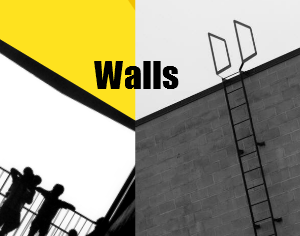 The unsettling behaviors of our traumatized children can trigger our own traumas and beliefs. We unconsciously activate our defense systems and shelter behind our walls. This may cause us to second guess our ability to parent. Perhaps, we may even respond with behaviors that disappoint or shock us. Or, we might fall into old patterns. Instead of parenting with intention and trauma-informed approaches, we revert to the parenting style of our own childhoods when well-behaved kids equaled good parents.
The unsettling behaviors of our traumatized children can trigger our own traumas and beliefs. We unconsciously activate our defense systems and shelter behind our walls. This may cause us to second guess our ability to parent. Perhaps, we may even respond with behaviors that disappoint or shock us. Or, we might fall into old patterns. Instead of parenting with intention and trauma-informed approaches, we revert to the parenting style of our own childhoods when well-behaved kids equaled good parents.
Parenting on auto-pilot is never a great approach. Traditional methods aren’t appropriate for traumatized children. As parents we cannot base our self-esteem on our children’s behavior and choices. Their successes and failures belong to them.
Ironically, their behavior can backfire. Yes, they may get our attention through acting out or by reenacting painful patterns from their history. This may cause a negative cycle that elicits reactive parenting from us and may create feelings of failure and shame in parents. (Society often reinforces this negative judgment.)
What if we look at their behavior, not as an indictment of our parental failures but as symptoms of a deeper need for healing? If we choose to break down our walls, be vulnerable, and expand our boundaries, we connect with their pain instead of our own feelings of disappointment, rejection, and failure. When we step beyond right/wrong–not only for our children but also ourselves–we can focus on healing and connection. Not an easy task especially since society places so much stock in the appearance of compliant behavior and traditional success.
For many of our kids success must be completely redefined. We must help our children recognize their unique, incremental triumphs. While they may seem like small accomplishments, these are huge and probably required great emotional risk as our kids step from behind the protection of their walls.
As parents we must learn to embrace a success for our kids that may be very different from the societal norms and the successes of our friends’ children. Mistakes become a stairway to learning. The climb will be steep and will include some slips and falls. Progress comes at a price: the removal of our defensive walls as both children and parents slowly dismantle and tear them down.
What are some solutions for dismantling these walls? We will explore them next week.



I know how hard it is to step beyond the judgment of right & wrong, especially when you are in the moment. For me, I thought I had all the answers from what I had read & for what society was telling me to do. Yet, things did not get better until I overcame my fear & let love run its course.
When traumatized kids lob “verbal handgrenades” it is challenging to stay neutral and not react to their attempt to displace their hurt/frustration/anger onto us. It is, however, an opportunity to validate their emotional firestorm, without matching it with our own distress. Understanding becomes our wall and defends us from the pain of their hurtful words. Stay focused on their struggle CONNECT with them. Later, when things are calm address their attempted deflection when heads and hearts are calm.
This article is a good reminder for me. How many times have I heard someone say, “You’re kids are turning out so well. You’re doing a good job!” That’s a lot of pressure for me, especially since I wonder what people think when my children’s behavior isn’t so great…or my response as a parent to a certain situation isn’t the best? I need to remind myself that my kids are not objects that can be molded into doing the “right” thing. They’re human beings with their own joys and challenges. As a parent, I can create an environment that is conducive to growth, but I can’t force any growth to happen. That’s up to my children to do themselves.